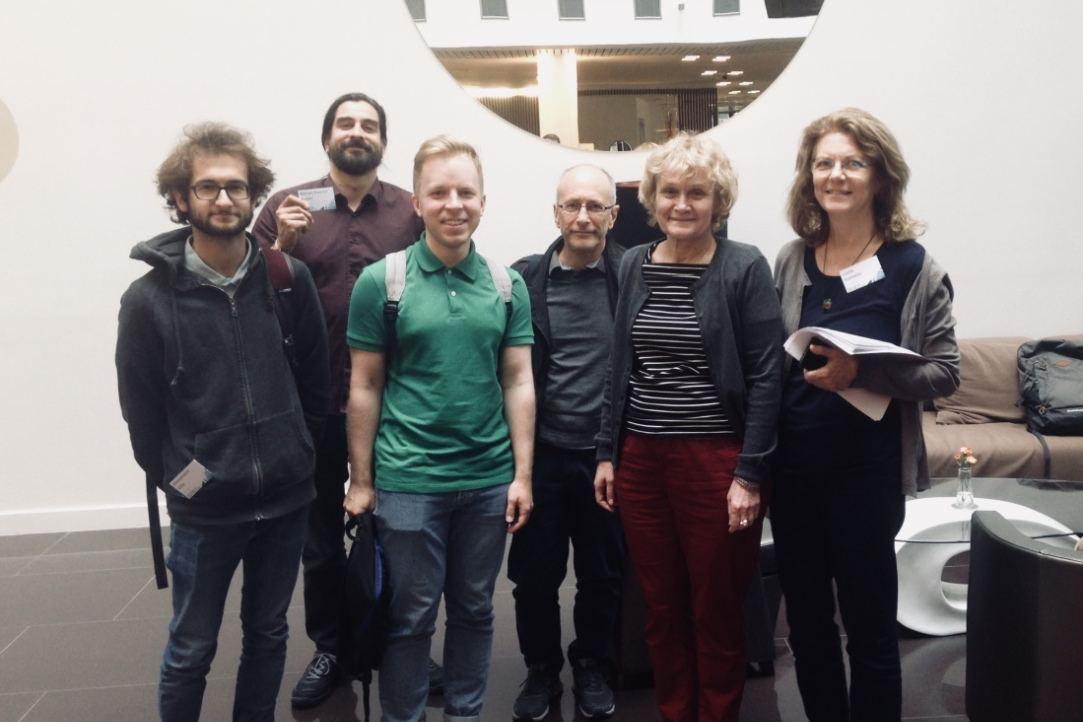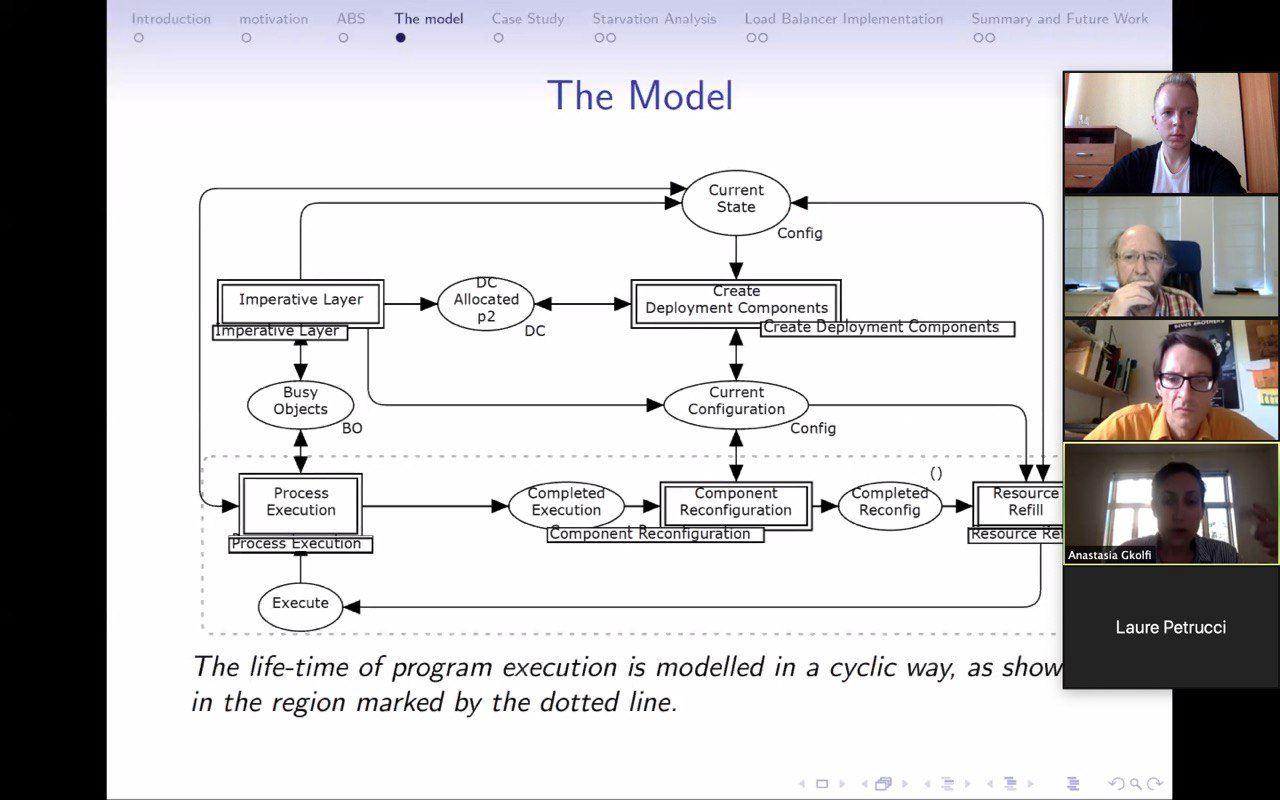Graduate Student of the Faculty of Computer Science on Studying in a Joint PhD Programme, Complex Systems, and Working During a Pandemic

For Roman Nesterov, PhD student and research assistant at the Laboratory of Process-Aware Information Systems (PAIS Lab), working remotely had already been the norm long before this spring. As student of a cotutelle PhD programme, he is constantly working with colleagues from Italy. We spoke with Roman about his research and about how one can pursue joint doctoral studies with another university abroad.
How is your PhD programme structured? How did this programme come to be?
I am in my third year of cotutelle doctoral studies at the Faculty of Computer Science at HSE University and the University of Milan-Bicocca (Università degli Studi di Milano-Bicocca, UNIMIB). My academic advisor at HSE is Professor and PAIS Lab Head Irina Lomazova, and my advisor at the University of Milan-Bicocca is Professor Lucia Pomello of the Department of Informatics, Systems, and Communications (Dipartimento di Informatica, Sistemistica e Communicazione, DISCo).
I am studying in an full time advanced doctoral programme, a mandatory part of which is completing internships at foreign universities. Professor Lomazova suggested taking things further and organizing a full-fledged double PhD programme. The system of double academic advising (co-tutoring) is widely developed in European universities. My advisors agreed upon the form their joint academic supervision would take and what would be expected of me, and this agreement went through all the standard approval procedures. Once the agreement was signed, in my very first year of study, I became a doctoral student of two universities at once. Due to the fact that HSE had switched to a different degree system (PhD HSE) in which PhDs are awarded, arranging this cotutelle programme turned out to be easier than one might expect. Under the joint academic supervision agreement, I need to prepare one thesis text in English and pass a single defense that will be held at HSE.

What is the focus of your research?
I am modeling the behavior of complex multi-agent systems, or systems that consist of many components. System agents interact with each other: for example, they send messages to each other or perform synchronous operations. A monolithic approach to modeling such systems does not take into account agents’ individual behaviors, and may consequently be inadequate. Therefore, we are working on a compositional approach, whereby a model of the entire system is composed of models of agents in accordance with how they should interact.
However, this approach may also have disadvantages. For example, a model may be composed of two correct agents (i.e., agents that work without deadlocks and correctly terminate), but ultimately end up with incorrect behavior. It can be extremely difficult to fully validate the model since there may not be enough computational resources. With the help of special local individual agent model checks, we were able to prove that the correctness of the model of the entire system will follow from the correctness of the models of individual agents. This method greatly simplifies the modeling of the behavior of multi-agent systems.
We are applying our approach to solving the problem of synthesizing models from information systems event logs (process mining). Based on real data, we are building well-structured models that reflect the real state of the system: over time, they can change and differ from the form they were originally planned.

What form does your work with Milan take?
In accordance with the agreement, I spend most of my time in Russia, and several times a year I travel to Italy and work there, as part of the team of the Models of Concurrency, Computation and Communication Laboratory (MC3). Usually, before arriving, we designate a specific set of tasks that I will deal with, and I devote all my time in Milan to those tasks. Before the pandemic, I traveled to Milan twice a year, each time for a month and a half. My last trip to Milan was actually in January-February 2020. I believe that it is thanks to the integrated approach we took to organizing our joint work that we have been able to obtain interesting results. My trips to Milan are always fruitful and exciting, because, in addition to our lab work, we manage to find time to enjoy Italian cuisine, take endless walks in Milan's parks and, of course, visit unique museum exhibits.
Has working remotely affected your work?
I can say that the quarantine has not had a significant impact on our joint work—we often met online before the pandemic. For example, in May we had to prepare the final version of our article for the international workshop ‘Petri Nets and Software Engineering (PNSE-2020)’, which was held at the end of June. We prepared the article on time, but the conference itself was, of course, online. In addition, in June I underwent a routine performance review at HSE and the University of Milan-Bicocca. It entails a fairly standard procedure: you present your work and plans at a department meeting, and there is a question and answer session.
For me, the only catch with working remotely—when the boundaries between home and work become blurred—turned out to be psychological. But thanks largely to Irina Alexandrovna, Lucia, as well as my friends and colleagues from the Faculty of Computer Science, I managed to overcome all the difficulties of the period of self-isolation, which, by the way, coincided with my birthday. When the opportunity arose to return to ‘offline mode’, I took it — working onsite is more comfortable for me. I tried to organize my work so that the psychological discomfort from being at home for so long did not affect the results of my work, but this does not mean that I managed to eliminate the discomfort entirely.
Irina A. Lomazova
Head of the Laboratory of Process-Aware Information Systems (PAIS Lab)
Roman Nesterov
Research Assistant at the Laboratory of Process-Aware Information Systems (PAIS Lab)
See also:
‘The Defence Was Both Interesting and Nerve-Wracking’
Ana Livia Araujo Esteves, from Brazil, lecturer at the HSE School of International Regional Studies, has recently defended her PhD at HSE University. In her interview with the HSE News Service, she talks about her research into Brazilian–Russian relations, the difficulties of the thesis defence process, and her further plans in academia.
‘My PhD Journey Was Made Possible by My Studies at HSE’
Tianxiong Yu, 25, completed his Master’s in Economics and Economic Policy at HSE University in Moscow. He spent the second year of the programme at the University of Luxembourg and has since enrolled there on a doctoral programme. While it is no longer a joint programme, HSE graduates continue to successfully pursue PhDs at international universities. Tianxiong spoke to the HSE News Service about his memories of his master’s course and how his time at HSE paved the way for his doctoral research.
‘Getting a PhD Is Just the Beginning’
In autumn 2024, Yea Rem Choi, from South Korea, Junior Research Fellow at the International Laboratory for Supercomputer Atomistic Modelling and Multi-scale Analysis and assistant at the HSE MIEM School of Applied Mathematics, defended his doctoral dissertation on applied mathematics at HSE University. Yea Rem Choi talked to the HSE News Service about the soft skills that helped him in his research, how he is building a career, and why he chose HSE University for his doctoral studies.
‘My Thesis Defence Was a Lively Discussion’
Han Zhang, from China, has worked at the International Laboratory for Evaluation of Practices and Innovations in Education at HSE University-Moscow since 2023. In October 2024, she successfully defended her PhD thesis on the relationship between collaborative peer editing and the quality of academic writing in a second language. She spoke with the HSE News Service about why she chose to join HSE University and how her research can be used to improve student writing performance.
Doctoral Student Explores the Challenges Faced by International PhD Seekers During the Pandemic
In late June 2024, a pre-defence of Nurudeen Abdul-Rahaman’s dissertation took place at the HSE Institute of Education. Nurudeen Abdul-Rahaman, a doctoral student from Ghana, has presented his dissertation ‘Academic and Social Integration of Foreign Doctoral Students at Russian Universities during the Covid-19 Pandemic’ for the degree of Candidate of Sciences in Education (PhD).The HSE News Service spoke with Nurudeen as well as his academic supervisor, Evgeniy Terentev, Director of the Institute of Education, about their extensive research on international doctoral students in Russia and Nurudeen's contribution to this research.
‘We Cannot Understand the Modern Ideological Confrontation without the Accusations that Emerged during the Lausanne Process’
Rainer Matos Franco, from Mexico, defended his PhD thesis with honours at HSE University this June. In his dissertation, Rainer Matos Franco examines the history of anticommunism in Europe during the 1920s. The HSE News Service spoke with Rainer and his academic supervisor, Tatiana Borisova, about the significance of the Lausanne Process for the Cold War and contemporary history, the opportunities provided by HSE University for international PhD candidates, and the challenges of working with a vast database of historical sources.
‘My Research Has Evolved into A Broader and More Encompassing Vision’
Seungmin Jin, from South Korea, is researching the field of Explainable AI and planning to defend his PhD on ‘A Visual Analytics System for Explaining and Improving Attention-Based Traffic Forecasting Models’ at HSE University this year. In September, he passed the pre-defence procedure at the HSE Faculty of Computer Science School of Data Analysis and Artificial Intelligence. In his interview for the HSE News Service, he talks about his academic path and plans for the future.
‘Studying at HSE Was a Chance for Me to Get to Know Some Supportive Seniors, Knowledgeable Professors, and Wonderful Friends’
On August 4, 2023, a pre-defence of the thesis on ‘Refugee-Host Community Conflict over Assimilation, Integration, and State Legitimacy: The Case of Rohingyas in Bangladesh’ by Md. Reza Habib will be held at HSE University. The preliminary defence will take place at a joint meeting of the HSE School of Sociology and the International Laboratory for Social Integration Research. Md. Reza Habib shared his experience of studying and preparing his PhD with the HSE News Service.
‘At HSE University, We Receive Substantial Support for Our Research’
Wenrui Zhang, from China, is a recent graduate of theMaster’s in Economics and Economic Policy at the HSE UniversityFaculty of Economic Sciences. Having successfully defended his master’s thesis on the impact of COVID-19 on the incomes of vulnerable groups, Wenrui has set his sights on publishing his research and enrolling in adoctoral programme at the university. The HSE News Service interviewed Wenrui about his achievements so far and his goals for the future, and also spoke to Prof.Elena Kotyrlo, his academic supervisor.
‘It’s a Very Small Area of Political Science, and Working to Redress That Is Very Satisfying’
On March 15, Judas Everett defended his doctoral dissertation ‘The Effect of the Patterns in the Dissolution of Communism on the Transition to New Systems in Eastern Europe’, which investigates the relationship between the demise of communist regimes in Central and Eastern Europe and the quality of democracy in the post-communist regime. The defence took place remotely. His academic supervisor was Professor Andrey Akhremenko of the HSE University School of Politics and Governance at the Faculty of Social Sciences. In his interview, Judas talks about the topic of his research and explains why political science is more important than ever.


